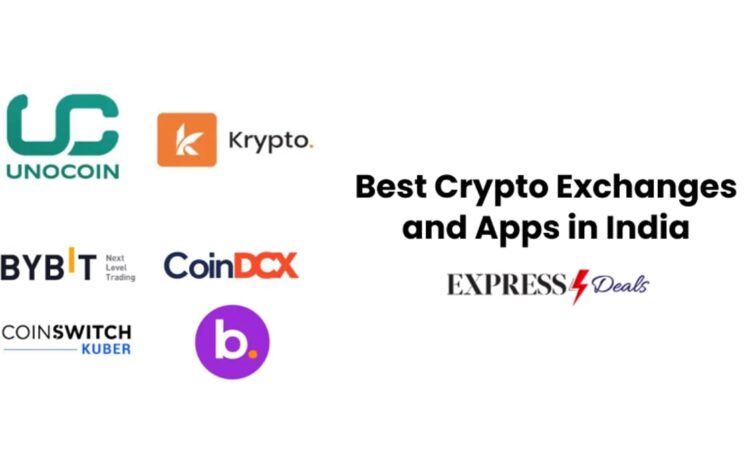
Like ByBit and KuCoin, MEXC is another of the best crypto leverage platforms. It offers up to 125x leverage and supports more than 1,520+ cryptocurrencies and 2,110 trading pairs. MEXC puts customers first, so it prioritises their satisfaction, privacy, and anonymity.
Key features
-
Spot trading, margin trading, futures trading and derivatives trading
-
Staking is available for many popular cryptocurrencies, like BTC, ETH, DOT, etc
-
Available Fiat currencies: USD, TWD, AED, PHP, AUD, JPY, CAD, EUR & more
-
No KYC required
Minimum Investment
Payment Methods
Trading and Other Fees
Security
-
Two-factor authentication (2FA)
-
Cold storage wallet system
-
Regular security audits and assessments
-
Advanced encryption protocols, like SSL encryption, AES-256 encryption, Dynamic encryption algorithm, etc.
Why Is This Among The Best
For a wide range of markets and cryptocurrencies, versatile trading options, fast and accurate charts, an intuitive interface and multilingual customer support
Tools Available
-
Tradingview integration
-
Advanced charting and analysis tools
-
Analysis tools to identify price movements, identify patterns, etc.
Pros
-
Quick and anonymous registration, as no identity verification is required
-
Earn reward by staking a few selected cryptos
-
Free spot trading
Cons
Insights from Our Product Testing Specialist
MEXC is a versatile crypto trading platform that provides access to a versatile trading market in one place. With a customisable, fast and accurate chart, it’s easy to find the best trading options, making it suitable for experienced and novice traders.
User Testimonial
“Low fees. Easy and fast UI. Good for beginners.”
Documents Required To Create An Account For Crypto Exchanges
-
Valid government-issued photo identification (e.g., passport, driver’s licence, ID card)
-
Proof of address (e.g., utility bill, bank statement) to verify residence
-
Selfie or photo holding the identification document for identity verification purposes
-
Additional information may be requested depending on the exchange’s compliance requirements and local regulations.
Types Of Cryptocurrency Exchanges?
-
Centralised Exchanges (CEX): Traditional platforms where users trade through a central authority’s order book.
-
Decentralised Exchanges (DEX): Peer-to-peer platforms enabling direct trading without a central authority.
-
Peer-to-Peer (P2P) Exchanges: Platforms connecting buyers and sellers directly for secure transactions.
-
Hybrid Exchanges: Exchanges combining features of both centralised and decentralised platforms.
-
Over-the-Counter (OTC) Desks: Facilities facilitating large-volume trades outside regular exchange order books.
What’s The Difference Between A Crypto Exchange And A Crypto Brokerage?
Crypto Exchange:
-
Facilitates direct trading between users.
-
Liquidity depends on active traders.
-
Prices are determined by market demand and supply.
-
Users set their orders and manage trades.
-
Subject to financial exchange regulations, including KYC and AML procedures.
Crypto Brokerage:
-
Acts as an intermediary between buyer and seller.
-
Provides liquidity through aggregated prices.
-
Offers fixed prices for buying or selling.
-
Provides a simplified interface for quick trades.
-
Subject to financial regulations, compliance varies by jurisdiction and services offered.
Top 10 Most Popular Cryptocurrencies By Market Cap?
-
Bitcoin (BTC)
-
Ethereum (ETH)
-
Binance Coin (BNB)
-
Solana (SOL)
-
Cardano (ADA)
-
Tether (USDT)
-
XRP (XRP)
-
Polkadot (DOT)
-
USD Coin (USDC)
-
Dogecoin (DOGE)
Factors To Look For To Pick The Right Indian Crypto Exchange
Consider the following factors:
1. Regulatory Compliance: Ensure the exchange complies with Indian laws and regulations, providing a legal and secure trading environment.
2. Availability of INR Trading Pairs: Look for exchanges offering a wide range of trading pairs with the Indian Rupee (INR) for seamless transactions.
3. Security Measures: Prioritise exchanges with robust security measures such as Two-Factor Authentication (2FA) and cold storage of funds to safeguard against hacks and theft.
4. Transaction Fees and Trading Commissions: Compare fee structures among exchanges to minimise trading costs and maximise profits.
5. User Interface and Ease of Navigation: Choose exchanges with intuitive interfaces for easy navigation and efficient trading.
6. Customer Support Availability: Opt for exchanges offering responsive customer support to address any issues or concerns promptly.
7. Liquidity: Assess the liquidity of the exchange for the chosen cryptocurrencies to ensure smooth and timely transactions.
8. Reputation and Track Record: Research the exchange’s reputation and track record in the Indian market to gauge reliability and trustworthiness.
9. Range of Cryptocurrencies Supported: Select exchanges offering a diverse range of cryptocurrencies for trading to access a variety of investment opportunities.
10. Advanced Trading Features: Consider exchanges with advanced trading features, such as margin trading or futures contracts, for experienced traders seeking additional trading options.
Cryptocurrency Exchanges Charge Different Fees
Cryptocurrency exchanges charge varying fees for services like trading, deposits, and withdrawals. These fees may include trading fees, deposit/withdrawal fees, maker/taker fees, margin trading fees, withdrawal limits, and API access fees. It’s crucial to review the fee structures of different exchanges to choose one that suits your trading needs and budget.
Conclusion
These are the leading crypto exchanges in India that excel in usability, security, fees, and coin availability. When choosing a platform for digital asset exchanges, consider the mentioned factors, especially the fees, hidden charges, accepted deposit options, and liquidity. While each platform has its strengths and weaknesses, is our top choice for Indian investors due to its simplicity, security, and comprehensive features.
FAQs:
1. Are cryptocurrency exchanges in India legal?
Yes, crypto trading apps and their services are legal in India subject to regulatory compliance and guidelines.
2. What are the fees associated with trading cryptocurrencies on exchanges?
Fees associated with trading cryptocurrencies on exchanges typically include transaction fees, withdrawal fees, and sometimes deposit fees, varying among platforms.
3. Can I trade cryptocurrencies using Indian rupees (INR)?
Yes, many user-friendly crypto apps allow trading using Indian rupees (INR) as a trading pair with various cryptocurrencies.
4. How do I protect my investments from hacking or theft on a crypto exchange or app?
First and foremost, look only for secure crypto platforms. You should also employ strong security measures, such as enabling two-factor authentication (2FA), using hardware wallets for storing funds, and exercising caution with personal information to protect investments from hacking or theft on a crypto exchange or app.
5. How secure are the crypto exchanges?
Crypto exchanges prioritise security measures such as encryption, cold storage for funds, and two-factor authentication (2FA) to safeguard user assets, although risks remain due to the potential for hacking attacks.
To contact the Express Deals team, please drop an email to – expressdeal@newindianexpress.com
We will reach out to you in the next 48 business hours.
Disclaimer: At Express Deals, we work with subject matter experts to bring you the latest in product innovations and Indian eCommerce trends. Express Deals participates in various affiliate programs, which means we may earn revenue on purchases made through the links to retailer sites. Please note that prices mentioned on the pages can vary based on retailer promotions on any given day. Also, do note that we will not be liable for any claim under applicable laws, including but not limited to the Consumer Protection Act, 2019, with respect to the featured products since they aren’t directly sold by us.




